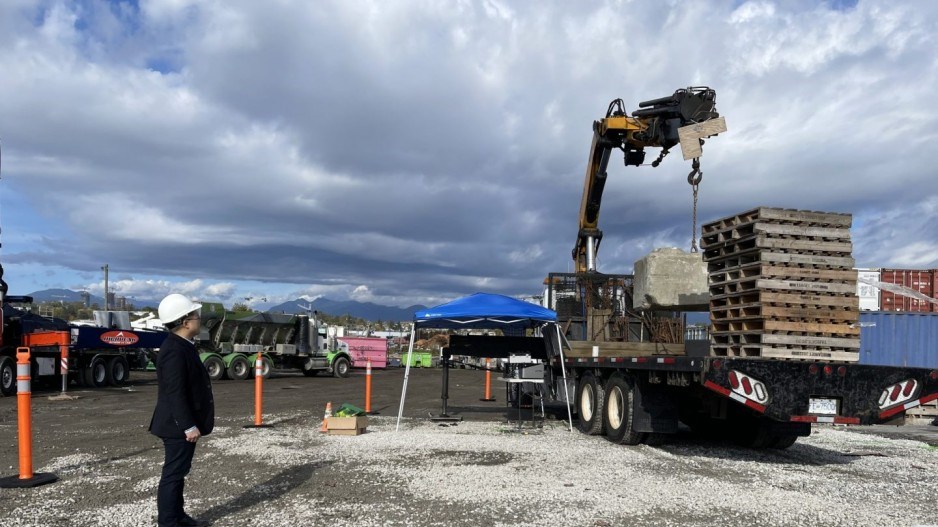Robots were recently seen moving concrete blocks on Mitchell Island to demonstrate how AI can help with labour shortages in the construction industry.
New AI-powered construction robots have been developed by UBC structural engineering professor Tony Yang and his team at the Smart Structures Lab to help speed up the construction process of homes and buildings.
A demonstration of the robots was held in the fall in Richmond where the robots were moving the blocks to assemble a full-scale wall.
Before construction, an aerial drone captured a 3D map of the construction site, and the AI robots used it to ensure they are building according to the plan.
These robots can perform basic tasks such as lifting and moving objects around a job site, automatically moving materials and monitoring sites for safety issues.
Yang told the Richmond News the idea behind the construction robots was mainly due to the housing shortage in B.C. and in Canada and not enough workers to meet construction demands.
"Part of the reason for this is that we are not building houses fast enough," said Yang, adding there are not "enough skilled workers to get the job done efficiently."
Training new workers, he said, can take at least four or five years before they can start working in the "labour market."
Work done by the AI-powered robots would be fully automatic and replace the on-field work of former workers, according to Yang.
When asked if there are any concerns about cutting jobs with robots taking over the roles of skilled construction workers, Yang said it would provide more opportunities instead.
"We need more workers, if anything, and the robots are to supplement the lack of workers," said Yang.
Construction workers already on projects, he added, would instead transition into management roles and oversee more work sites.
"Our made-in-Canada technology is ready to deploy now and can be quickly scaled up, helping to elevate Canadian construction and making us more competitive on the global stage."
Got an opinion on this story or any others in Richmond? Send us a letter or email your thoughts or story tips to [email protected].




